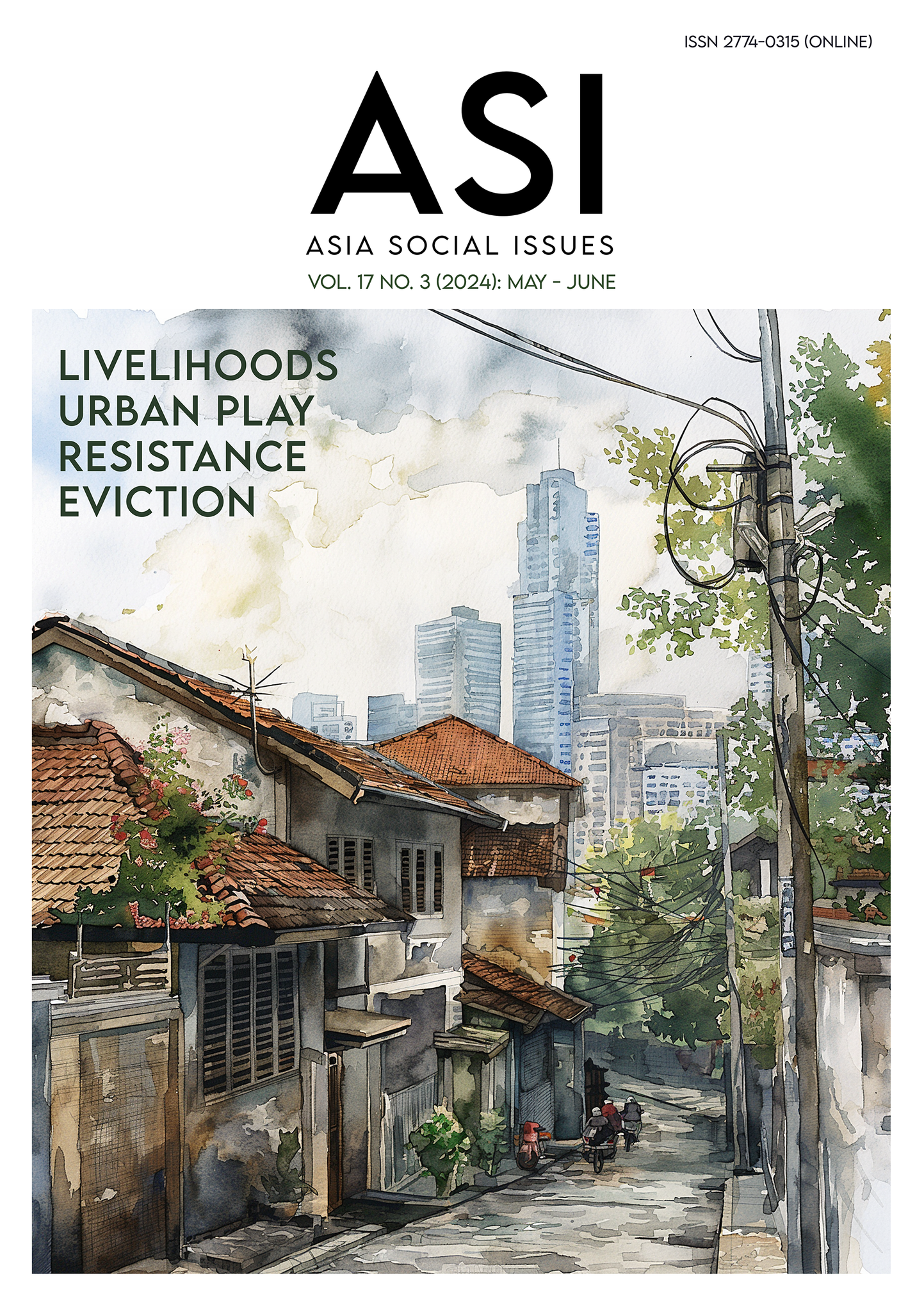Strategies to Apply Sufficiency Economy Philosophy to the Way of Life for Youth in The Greater Mekong Sub-region
Main Article Content
Abstract
This research aimed to study the learning state and knowledge about the sufficiency economy philosophy (SEP) of youth in the Greater Mekong Sub-region to create a strategy to sustainable apply the SEP to the way of life of youth in the Greater Mekong Sub-region, create a map for SEP application to the way of life, and produce the public media to extend application results for benefit. The sample group was key informants: 50 youth students from each institute: Chiang Rai Rajabhat University, Shan State Community College, Luang Nam Tha Teacher Training College, Luang Phrabang Teacher Training College, Dong Kham Chang Teacher Training College, Dong Kham Chang Accounting and Financial Institute, and Dong Kham Chang Agricultural Technical College, 50 experts and scholars, and 50 administrators or professors. The research tool included a questionnaire about the learning state and knowledge about the sufficiency economy philosophy (SEP) of youth in the Greater Mekong Sub-region, a focus group, and a workshop. The result of the workshop of experts, scholars, and administrators or professors from the three countries to draft the strategies was eight strategies and 25 development guidelines. The map for SEP application to the way of life was also produced, and public media to extend application results for sustainable benefit was initiated.
Article Details

This work is licensed under a Creative Commons Attribution-NonCommercial-NoDerivatives 4.0 International License.
Copyright: CC BY-NC-ND 4.0
References
Bhiromrat, K. (2010). Students conduct of Rajabhat Universities in Bangkok on the way of self – sufficient economy. Bangkok, Thailand: Suan Sunandha Rajabhat University.
Kongtanajaruanan, C. (2008). Lifestyle and quality of life regarding sufficiency economy philosophy of farmers in Nogmajab Village, Maefak Sub-district, San Sai District, Chiang Mai Province (Master’s thesis). Chiang Mai, Thailand: Chiang Mai University.
Phanthali, N. (2020). The Role of Monks in Helping The People in The Covid 19 Situation. Saeng Isan Academic Journal, 17(1), 66-76.
Srimaitreephithak. (2022). International Development Cooperation and Promotion of Philosophy of Sufficiency Economy. Bangkok, Thailand: Thailand International Cooperation Agency (TICA).
Tekhanmag, K. (2013). Factors Related to Life Styles by Sufficiency Economy Philosophy of Students of Phranakhon Si Ayutthaya Rajabhat University.. Phra Nakhon Si Ayutthaya, Thailand: Faculty of Humanities and Social Sciences, Phra Nakhon Si Ayutthaya Rajabhat University.
The Chaipattana Foundation. (2020). Performance Summary Chaipattana Fund to fight against COVID-19 (and various epidemics). Bangkok, Thailand: Chaipattana Foundation Journal.
Tuamyang, D., Chatuprashewin, C., Pakdeewong, P. & Kornpuang, A. (2013). A Strategic Development Model for Small-Sized Schools Administration Applying the Philosophy of Sufficiency Economy. Journal of Education Naresuan University, 15(1), 33-47.
Wongnaya, S. & Chaowakeeratiphong, T. (2013). Strategy Development for Village Management according to Living based on the Sufficiency Economy Philosophy in Kamphaeng Phet and Tak. The Golden Teak: Humanity and Social Science Journal, 19(1), 1-12.


